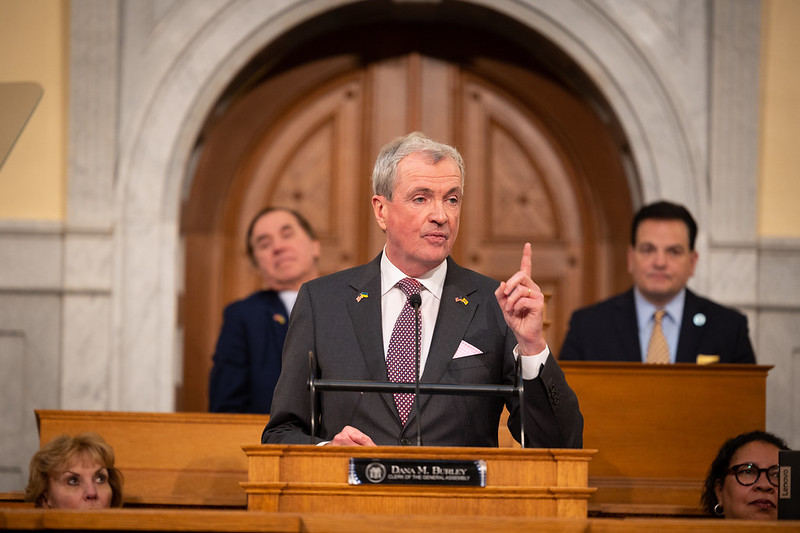Gov. Phil Murphy in January delivered his 2023 State of the State address at the Assembly Chambers in Trenton. — Photo by Edwin Torres/Governor’s Office
By Joshua Burd
Gov. Phil Murphy has lined up support from 90 mayors from across New Jersey as part of his recent push to reform and modernize the state’s Prohibition-era liquor license laws.
Speaking Thursday at an annual event held by the New Jersey Conference of Mayors, Murphy announced the new bipartisan coalition known as Mayors for Liquor License Reform. The officials represent urban, suburban and rural towns across a vast swath of the state, he said, all of which would benefit from the economic development generated by overhauling the regulatory framework to make liquor licenses more affordable, equitable and accessible to small businesses and other stakeholders.
It follows Murphy’s announcement in January that liquor license reform would become a top priority and his subsequent unveiling of a proposal, which has since been introduced in the Legislature by Sen. Gordon Johnson and Assemblyman Raj Mukherji. The proposal would:
- Gradually phase out the existing, outdated population cap on licenses over five years until it is permanently eliminated
- Maintain local control
- Establish progressive prices and associated fees based upon business size and a cap on the annual renewal fee not to exceed $2,500
- Repatriate inactive licenses to boost availability
- Eliminate the secondary market that currently makes licenses unaffordable for small business owners
- Permanently ease the restrictions that have hampered breweries
- Provide a mechanism to support existing license holders
“These mayors come from counties across the state. They represent more than one million residents of historic small towns, growing townships and midsized cities,” Murphy said, according to remarks from the 58th Annual Spring Conference in Atlantic City. “But most important, they represent hundreds of small restaurants whose owners are being left out — and whose investments in their establishments are being left at-risk — because they do not have access to the liquor license that can allow them to better compete and stay in business. They understand the patent unfairness of our current liquor law regime and the significant local economic benefits that our proposed reforms would bring.”
Commercial developers and property owners have long called for such an update and an expansion of liquor licenses, arguing it would boost downtowns and mixed-use projects, but concerns about compensating existing license holders have stymied any attempt at reform. Murphy on Thursday said that, in lending their support and advocating for reform, all 90 charter members of the mayors’ coalition signed an open letter noting, “Given the exorbitant costs for a license, coupled with the lack of availability and the existing population cap for municipalities, the present system favors the economically advantaged while hampering mom-and-pop businesses and town with smaller populations.”
The support could be critical for an issue that has sparked fierce resistance in past years. The second-term governor said his office “continues to engage stakeholders and advocate for equitable reforms and looks forward to working with lawmakers to finalize a comprehensive plan that will eliminate the existing roadblocks and unlock New Jersey’s economic development potential.”
Murphy calls for five-year phaseout of liquor license cap, tax credit for existing holders










